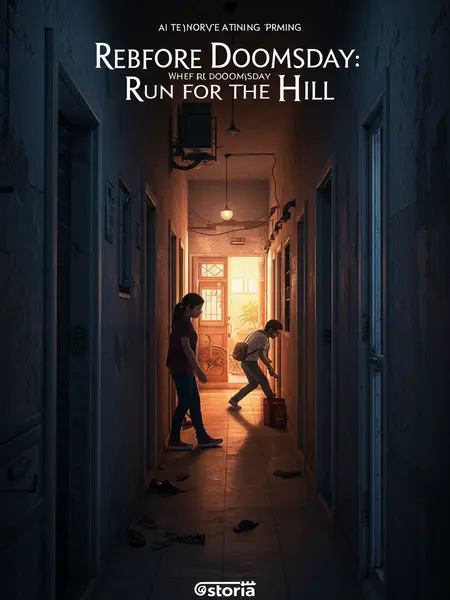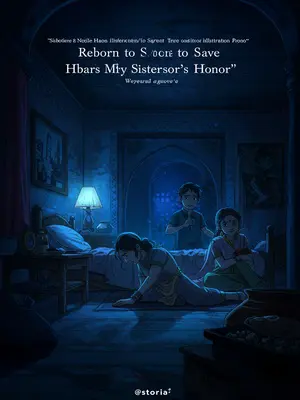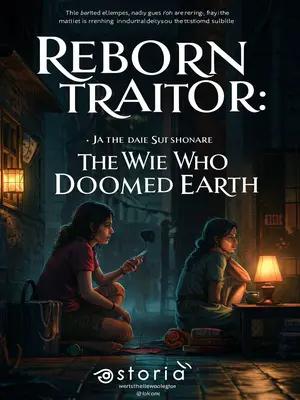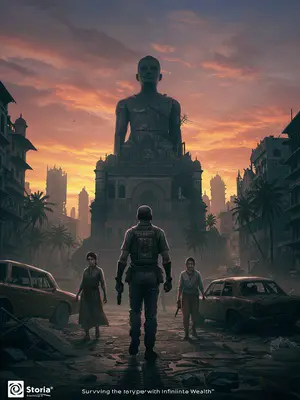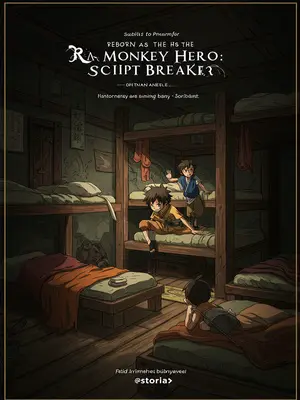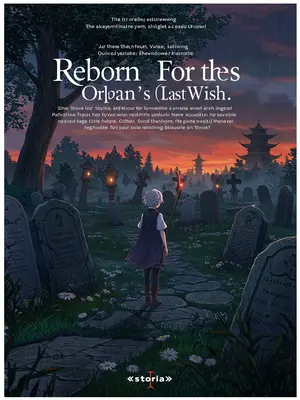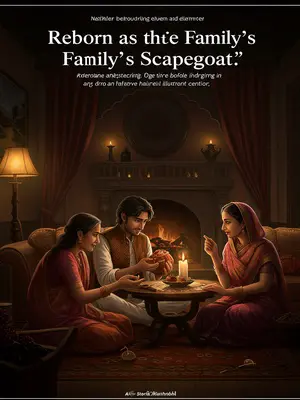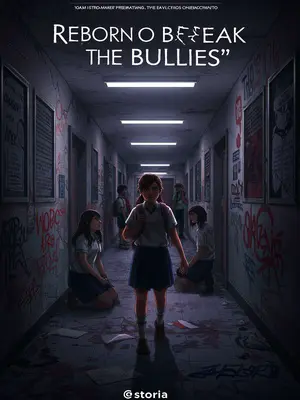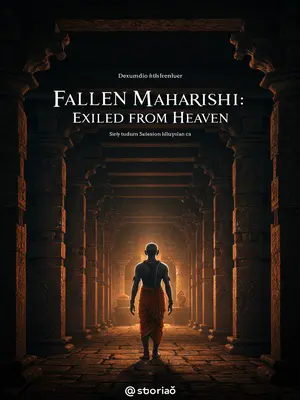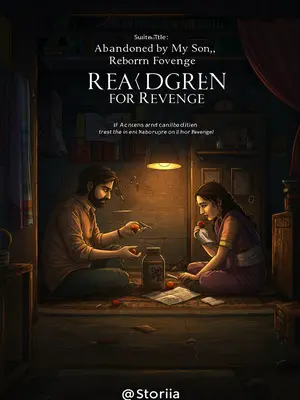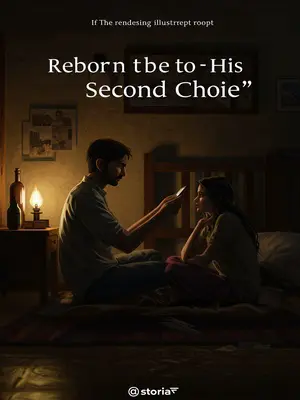Chapter 4: The Call Home
After a few rings, the call connected.
His voice came through a bit muffled, maybe from the wind, maybe from bending over a furrow. 'Hello? Papa, are you digging potatoes right now?'
"Yes, how did you know? What’s up, Rohan?"
I could almost picture him: bent over in the brown earth, checked gamcha tied around his forehead, face glistening with sweat, his phone wedged between shoulder and ear as he worked.
Just like in my previous life, my parents hadn’t received the zombie warning yet.
The network in the fields was always patchy, and my parents barely used their smartphones—only for calls, and sometimes the odd WhatsApp video of some baba’s pravachan.
Usually, except for calls, they rarely checked their phones. The fields were far from the village, and during potato harvest, they left for the fields before dawn, so they hadn’t seen the news.
The early morning fog, the lowing of buffaloes, the smell of fresh earth—my parents were always happiest in those moments, cut off from the madness of the world.
But that’s just what I needed.
If they had seen the news, panic would have set in already. But their calm gave me a fighting chance.
“Papa, listen to me—there’s going to be abnormal weather in the next few days. Maybe earthquakes, maybe floods.”
He grunted, half-listening. I could imagine him wiping his brow with his gamcha, thinking his city-educated son was overreacting again.
“Arrey, no way, Rohan, I checked the weather forecast. It’s supposed to be great these days.” Papa didn’t believe me.
His tone was half amused, half exasperated. 'TV par toh kuch nahi bola!' I could hear a chicken squawking in the background.
“I’m serious. The government already issued a warning. If you don’t believe me, check the video I just sent you. Everyone’s panic-buying supplies.” I sent him a video I’d just recorded at the supermarket entrance.
I pressed send, fingers shaking, praying he’d see what I’d seen—the raw fear in people’s faces, the shopkeeper’s frantic shouting, the emptying shelves.
A few seconds later, Papa’s voice came again: “Beta, don’t bother panic-buying, just hurry home. We have two acres of potatoes, a dozen chickens, and five hundred kilos of freshly harvested wheat.”
He always counted chickens and potatoes like they were bank balance.
His words, simple and practical, filled me with warmth and a pang of longing for home-cooked food. For a second, I almost smiled despite the chaos around me.
In my previous life, when my parents told me to come home, I looked at the jammed traffic and didn’t take it seriously. I figured I’d just hole up in my rented flat for a few days and the government would get things under control. No one could have imagined this was the start of doomsday.
We always think there’s time, always believe someone else will fix things. This time, I wasn’t going to let that be my last mistake.
This time, I wanted to be with my parents and survive together.
There was no question in my mind; I’d go to them, whatever it took. Even if I had to wade through floods or dodge zombies, I’d find a way.
I knew there was a small farm truck at home, usually used to haul crops. I told my papa to quickly load all the dug-up potatoes onto the truck, take as much wheat as possible, and pack the essentials. Then drive to Shivgiri Hill, ten kilometres from home, and wait for me.
I rattled off instructions, surprising even myself with my urgency. My papa didn’t question, just said, 'Theek hai, beta. Jaldi aa.'
Shivgiri Hill is over a thousand metres above sea level, named for a small stream that flows down from its peak. It used to be a local tourist spot, but in recent years, poor maintenance led to fewer visitors, and now you can enter without a ticket.
I remembered childhood picnics there—cut mangoes, cricket with cousins, the echo of temple bells. Now, it would be our fortress.
